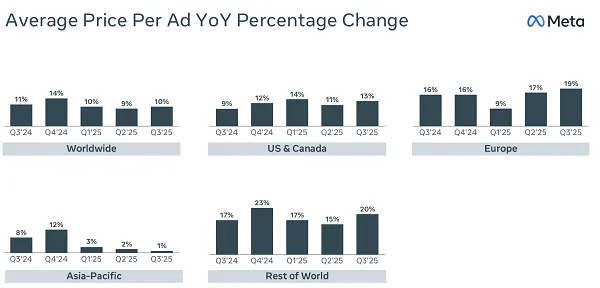the findings, drawn from internal company documents obtained by reuters, highlight the massive scale of fraudulent ad activity across meta’s platforms and the significant financial benefit the company appears to derive from it.
according to reuters,
“one december 2024 document notes that meta shows users an estimated 15 billion ‘higher risk’ scam advertisements—those clearly showing signs of fraud—every day.”
for many facebook and instagram users, this revelation comes as no surprise. complaints about scam ads and misleading promotions have circulated for years, often with little visible response from meta. while it’s unrealistic for a company of meta’s size to address every individual report, these internal papers suggest the company is not only aware of the problem but may be turning a blind eye due to the substantial revenue these ads generate.
this practice affects all advertisers. as meta’s ad demand increases, so do ad costs—meaning legitimate advertisers may be indirectly paying more as a result of scam ad activity.
Further documents reveal that meta’s ad-personalization system actually worsens the problem:
“users who click on scam ads are likely to see more of them, as meta’s algorithm targets ads based on user interests.”
meta reportedly only acts on likely scams when its systems can confirm fraud with 95% certainty, which leaves many deceptive ads unchecked.
the scale of global scam activity underscores the seriousness of this issue. according to the global anti-scam alliance, victims worldwide lost over $1 trillion to scams in the past year alone. its 2025 global state of scams report notes that 23% of adults globally have been victims, with rates as high as 41% in south america and africa.
given meta’s global reach, these revelations are expected to attract regulatory scrutiny from multiple regions.
meta, however, has denied the allegations, claiming the internal documents were not intended for public release and do not represent the complete picture. the company also stated that its scam detection systems have improved, reducing global scam ad reports by 58% in 2025.
still, this is a damaging report for meta’s public image. if proven true, regulators could impose substantial fines—though any penalties would need to exceed the profits meta earns from these ads to be truly effective.
ultimately, the findings could deal another blow to meta’s reputation and possibly slow its investment in future technologies. however, some speculate that mark zuckerberg’s renewed political connections could help mitigate the fallout and ease potential regulatory pressure.
